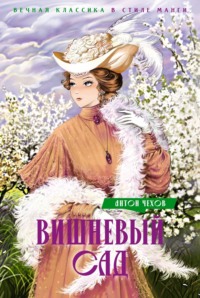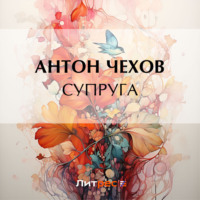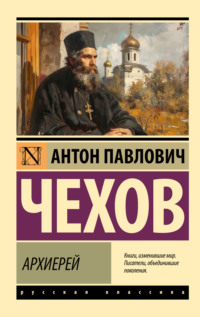 полная версия
полная версияThe Cook's Wedding and Other Stories
On the rare occasions when I went into that flat in the evening, this was always the picture I came upon: Putohin would be sitting at his little table, copying something; his mother and his wife, a thin woman with an exhausted-looking face, were sitting near the lamp, sewing; Yegoritch would be making a rasping sound with his file. And the hot, still smouldering embers in the stove filled the room with heat and fumes; the heavy air smelt of cabbage soup, swaddling-clothes, and Yegoritch. It was poor and stuffy, but the working-class faces, the children's little drawers hung up along by the stove, Yegoritch's bits of iron had yet an air of peace, friendliness, content… In the corridor outside the children raced about with well-combed heads, merry and profoundly convinced that everything was satisfactory in this world, and would be so endlessly, that one had only to say one's prayers every morning and at bedtime.
Now imagine in the midst of that same room, two paces from the stove, the coffin in which Putohin's wife is lying. There is no husband whose wife will live for ever, but there was something special about this death. When, during the requiem service, I glanced at the husband's grave face, at his stern eyes, I thought: "Oho, brother!"
It seemed to me that he himself, his children, the grandmother and Yegoritch, were already marked down by that unseen being which lived with them in that flat. I am a thoroughly superstitious man, perhaps, because I am a houseowner and for forty years have had to do with lodgers. I believe if you don't win at cards from the beginning you will go on losing to the end; when fate wants to wipe you and your family off the face of the earth, it remains inexorable in its persecution, and the first misfortune is commonly only the first of a long series… Misfortunes are like stones. One stone has only to drop from a high cliff for others to be set rolling after it. In short, as I came away from the requiem service at Putohin's, I believed that he and his family were in a bad way.
And, in fact, a week afterwards the notary quite unexpectedly dismissed Putohin, and engaged a young lady in his place. And would you believe it, Putohin was not so much put out at the loss of his job as at being superseded by a young lady and not by a man. Why a young lady? He so resented this that on his return home he thrashed his children, swore at his mother, and got drunk. Yegoritch got drunk, too, to keep him company.
Putohin brought me the rent, but did not apologise this time, though it was eighteen days overdue, and said nothing when he took the receipt from me. The following month the rent was brought by his mother; she only brought me half, and promised to bring the remainder a week later. The third month, I did not get a farthing, and the porter complained to me that the lodgers in No. 23 were "not behaving like gentlemen."
These were ominous symptoms.
Picture this scene. A sombre Petersburg morning looks in at the dingy windows. By the stove, the granny is pouring out the children's tea. Only the eldest, Vassya, drinks out of a glass, for the others the tea is poured out into saucers. Yegoritch is squatting on his heels before the stove, thrusting a bit of iron into the fire. His head is heavy and his eyes are lustreless from yesterday's drinking-bout; he sighs and groans, trembles and coughs.
"He has quite put me off the right way, the devil," he grumbles; "he drinks himself and leads others into sin."
Putohin sits in his room, on the bedstead from which the bedclothes and the pillows have long ago disappeared, and with his hands straying in his hair looks blankly at the floor at his feet. He is tattered, unkempt, and ill.
"Drink it up, make haste or you will be late for school," the old woman urges on Vassya, "and it's time for me, too, to go and scrub the floors for the Jews.."
The old woman is the only one in the flat who does not lose heart. She thinks of old times, and goes out to hard dirty work. On Fridays she scrubs the floors for the Jews at the crockery shop, on Saturdays she goes out washing for shopkeepers, and on Sundays she is racing about the town from morning to night, trying to find ladies who will help her. Every day she has work of some sort; she washes and scrubs, and is by turns a midwife, a matchmaker, or a beggar. It is true she, too, is not disinclined to drown her sorrows, but even when she has had a drop she does not forget her duties. In Russia there are many such tough old women, and how much of its welfare rests upon them!
When he has finished his tea, Vassya packs up his books in a satchel and goes behind the stove; his greatcoat ought to be hanging there beside his granny's clothes. A minute later he comes out from behind the stove and asks:
"Where is my greatcoat?"
The grandmother and the other children look for the greatcoat together, they waste a long time in looking for it, but the greatcoat has utterly vanished. Where is it? The grandmother and Vassya are pale and frightened. Even Yegoritch is surprised. Putohin is the only one who does not move. Though he is quick to notice anything irregular or disorderly, this time he makes a pretence of hearing and seeing nothing. That is suspicious.
"He's sold it for drink," Yegoritch declares.
Putohin says nothing, so it is the truth. Vassya is overcome with horror. His greatcoat, his splendid greatcoat, made of his dead mother's cloth dress, with a splendid calico lining, gone for drink at the tavern! And with the greatcoat is gone too, of course, the blue pencil that lay in the pocket, and the note-book with "Nota bene" in gold letters on it! There's another pencil with india-rubber stuck into the note-book, and, besides that, there are transfer pictures lying in it.
Vassya would like to cry, but to cry is impossible. If his father, who has a headache, heard crying he would shout, stamp with his feet, and begin fighting, and after drinking he fights horribly. Granny would stand up for Vassya, and his father would strike granny too; it would end in Yegoritch getting mixed up in it too, clutching at his father and falling on the floor with him. The two would roll on the floor, struggling together and gasping with drunken animal fury, and granny would cry, the children would scream, the neighbours would send for the porter. No, better not cry.
Because he mustn't cry, or give vent to his indignation aloud, Vassya moans, wrings his hands and moves his legs convulsively, or biting his sleeve shakes it with his teeth as a dog does a hare. His eyes are frantic, and his face is distorted with despair. Looking at him, his granny all at once takes the shawl off her head, and she too makes queer movements with her arms and legs in silence, with her eyes fixed on a point in the distance. And at that moment I believe there is a definite certainty in the minds of the boy and the old woman that their life is ruined, that there is no hope..
Putohin hears no crying, but he can see it all from his room. When, half an hour later, Vassya sets off to school, wrapped in his grandmother's shawl, he goes out with a face I will not undertake to describe, and walks after him. He longs to call the boy, to comfort him, to beg his forgiveness, to promise him on his word of honour, to call his dead mother to witness, but instead of words, sobs break from him. It is a grey, cold morning. When he reaches the town school Vassya untwists his granny's shawl, and goes into the school with nothing over his jacket for fear the boys should say he looks like a woman. And when he gets home Putohin sobs, mutters some incoherent words, bows down to the ground before his mother and Yegoritch, and the locksmith's table. Then, recovering himself a little, he runs to me and begs me breathlessly, for God's sake, to find him some job. I give him hopes, of course.
"At last I am myself again," he said. "It's high time, indeed, to come to my senses. I've made a beast of myself, and now it's over."
He is delighted and thanks me, while I, who have studied these gentry thoroughly during the years I have owned the house, look at him, and am tempted to say:
"It's too late, dear fellow! You are a dead man already."
From me, Putohin runs to the town school. There he paces up and down, waiting till his boy comes out.
"I say, Vassya," he says joyfully, when the boy at last comes out, "I have just been promised a job. Wait a bit, I will buy you a splendid fur-coat… I'll send you to the high school! Do you understand? To the high school! I'll make a gentleman of you! And I won't drink any more. On my honour I won't."
And he has intense faith in the bright future. But the evening comes on. The old woman, coming back from the Jews with twenty kopecks, exhausted and aching all over, sets to work to wash the children's clothes. Vassya is sitting doing a sum. Yegoritch is not working. Thanks to Putohin he has got into the way of drinking, and is feeling at the moment an overwhelming desire for drink. It's hot and stuffy in the room. Steam rises in clouds from the tub where the old woman is washing.
"Are we going?" Yegoritch asks surlily.
My lodger does not answer. After his excitement he feels insufferably dreary. He struggles with the desire to drink, with acute depression and.. and, of course, depression gets the best of it. It is a familiar story.
Towards night, Yegoritch and Putohin go out, and in the morning
Vassya cannot find granny's shawl.
That is the drama that took place in that flat. After selling the shawl for drink, Putohin did not come home again. Where he disappeared to I don't know. After he disappeared, the old woman first got drunk, then took to her bed. She was taken to the hospital, the younger children were fetched by relations of some sort, and Vassya went into the wash-house here. In the day-time he handed the irons, and at night fetched the beer. When he was turned out of the wash-house he went into the service of one of the young ladies, used to run about at night on errands of some sort, and began to be spoken of as "a dangerous customer."
What has happened to him since I don't know.
And in this room here a street musician lived for ten years. When he died they found twenty thousand roubles in his feather bed.
IN PASSION WEEK
"Go along, they are ringing already; and mind, don't be naughty in church or God will punish you."
My mother thrusts a few copper coins upon me, and, instantly forgetting about me, runs into the kitchen with an iron that needs reheating. I know well that after confession I shall not be allowed to eat or drink, and so, before leaving the house, I force myself to eat a crust of white bread, and to drink two glasses of water. It is quite spring in the street. The roads are all covered with brownish slush, in which future paths are already beginning to show; the roofs and side-walks are dry; the fresh young green is piercing through the rotting grass of last year, under the fences. In the gutters there is the merry gurgling and foaming of dirty water, in which the sunbeams do not disdain to bathe. Chips, straws, the husks of sunflower seeds are carried rapidly along in the water, whirling round and sticking in the dirty foam. Where, where are those chips swimming to? It may well be that from the gutter they may pass into the river, from the river into the sea, and from the sea into the ocean. I try to imagine to myself that long terrible journey, but my fancy stops short before reaching the sea.
A cabman drives by. He clicks to his horse, tugs at the reins, and does not see that two street urchins are hanging on the back of his cab. I should like to join them, but think of confession, and the street urchins begin to seem to me great sinners.
"They will be asked on the day of judgment: 'Why did you play pranks and deceive the poor cabman?'" I think. "They will begin to defend themselves, but evil spirits will seize them, and drag them to fire everlasting. But if they obey their parents, and give the beggars a kopeck each, or a roll, God will have pity on them, and will let them into Paradise."
The church porch is dry and bathed in sunshine. There is not a soul in it. I open the door irresolutely and go into the church. Here, in the twilight which seems to me thick and gloomy as at no other time, I am overcome by the sense of sinfulness and insignificance. What strikes the eye first of all is a huge crucifix, and on one side of it the Mother of God, and on the other, St. John the Divine. The candelabra and the candlestands are draped in black mourning covers, the lamps glimmer dimly and faintly, and the sun seems intentionally to pass by the church windows. The Mother of God and the beloved disciple of Jesus Christ, depicted in profile, gaze in silence at the insufferable agony and do not observe my presence; I feel that to them I am alien, superfluous, unnoticed, that I can be no help to them by word or deed, that I am a loathsome, dishonest boy, only capable of mischief, rudeness, and tale-bearing. I think of all the people I know, and they all seem to me petty, stupid, and wicked, and incapable of bringing one drop of relief to that intolerable sorrow which I now behold.
The twilight of the church grows darker and more gloomy. And the
Mother of God and St. John look lonely and forlorn to me.
Prokofy Ignatitch, a veteran soldier, the church verger's assistant, is standing behind the candle cupboard. Raising his eyebrows and stroking his beard he explains in a half-whisper to an old woman: "Matins will be in the evening to-day, directly after vespers. And they will ring for the 'hours' to-morrow between seven and eight. Do you understand? Between seven and eight."
Between the two broad columns on the right, where the chapel of Varvara the Martyr begins, those who are going to confess stand beside the screen, awaiting their turn. And Mitka is there too – a ragged boy with his head hideously cropped, with ears that jut out, and little spiteful eyes. He is the son of Nastasya the charwoman, and is a bully and a ruffian who snatches apples from the women's baskets, and has more than once carried off my knuckle-bones. He looks at me angrily, and I fancy takes a spiteful pleasure in the fact that he, not I, will first go behind the screen. I feel boiling over with resentment, I try not to look at him, and, at the bottom of my heart, I am vexed that this wretched boy's sins will soon be forgiven.
In front of him stands a grandly dressed, beautiful lady, wearing a hat with a white feather. She is noticeably agitated, is waiting in strained suspense, and one of her cheeks is flushed red with excitement.
I wait for five minutes, for ten… A well-dressed young man with a long thin neck, and rubber goloshes, comes out from behind the screen. I begin dreaming how, when I am grown up, I will buy goloshes exactly like them. I certainly will! The lady shudders and goes behind the screen. It is her turn.
In the crack, between the two panels of the screen, I can see the lady go up to the lectern and bow down to the ground, then get up, and, without looking at the priest, bow her head in anticipation. The priest stands with his back to the screen, and so I can only see his grey curly head, the chain of the cross on his chest, and his broad back. His face is not visible. Heaving a sigh, and not looking at the lady, he begins speaking rapidly, shaking his head, alternately raising and dropping his whispering voice. The lady listens meekly as though conscious of guilt, answers meekly, and looks at the floor.
"In what way can she be sinful?" I wonder, looking reverently at her gentle, beautiful face. "God forgive her sins, God send her happiness." But now the priest covers her head with the stole. "And I, unworthy priest." I hear his voice, ".. by His power given unto me, do forgive and absolve thee from all thy sins.."
The lady bows down to the ground, kisses the cross, and comes back. Both her cheeks are flushed now, but her face is calm and serene and cheerful.
"She is happy now," I think to myself, looking first at her and then at the priest who had forgiven her sins. "But how happy the man must be who has the right to forgive sins!"
Now it is Mitka's turn, but a feeling of hatred for that young ruffian suddenly boils up in me. I want to go behind the screen before him, I want to be the first. Noticing my movement he hits me on the head with his candle, I respond by doing the same, and, for half a minute, there is a sound of panting, and, as it were, of someone breaking candles… We are separated. My foe goes timidly up to the lectern, and bows down to the floor without bending his knees, but I do not see what happens after that; the thought that my turn is coming after Mitka's makes everything grow blurred and confused before my eyes; Mitka's protruding ears grow large, and melt into his dark head, the priest sways, the floor seems to be undulating..
The priest's voice is audible: "And I, unworthy priest."
Now I too move behind the screen. I do not feel the ground under my feet, it is as though I were walking on air… I go up to the lectern which is taller than I am. For a minute I have a glimpse of the indifferent, exhausted face of the priest. But after that I see nothing but his sleeve with its blue lining, the cross, and the edge of the lectern. I am conscious of the close proximity of the priest, the smell of his cassock; I hear his stern voice, and my cheek turned towards him begins to burn… I am so troubled that I miss a great deal that he says, but I answer his questions sincerely in an unnatural voice, not my own. I think of the forlorn figures of the Holy Mother and St. John the Divine, the crucifix, my mother, and I want to cry and beg forgiveness.
"What is your name?" the priest asks me, covering my head with the soft stole.
How light-hearted I am now, with joy in my soul!
I have no sins now, I am holy, I have the right to enter Paradise! I fancy that I already smell like the cassock. I go from behind the screen to the deacon to enter my name, and sniff at my sleeves. The dusk of the church no longer seems gloomy, and I look indifferently, without malice, at Mitka.
"What is your name?" the deacon asks.
"Fedya."
"And your name from your father?"
"I don't know."
"What is your papa's name?"
"Ivan Petrovitch."
"And your surname?"
I make no answer.
"How old are you?"
"Nearly nine."
When I get home I go to bed quickly, that I may not see them eating supper; and, shutting my eyes, dream of how fine it would be to endure martyrdom at the hands of some Herod or Dioskorus, to live in the desert, and, like St. Serafim, feed the bears, live in a cell, and eat nothing but holy bread, give my property to the poor, go on a pilgrimage to Kiev. I hear them laying the table in the dining-room – they are going to have supper, they will eat salad, cabbage pies, fried and baked fish. How hungry I am! I would consent to endure any martyrdom, to live in the desert without my mother, to feed bears out of my own hands, if only I might first eat just one cabbage pie!
"Lord, purify me a sinner," I pray, covering my head over. "Guardian angel, save me from the unclean spirit."
The next day, Thursday, I wake up with my heart as pure and clean as a fine spring day. I go gaily and boldly into the church, feeling that I am a communicant, that I have a splendid and expensive shirt on, made out of a silk dress left by my grandmother. In the church everything has an air of joy, happiness, and spring. The faces of the Mother of God and St. John the Divine are not so sorrowful as yesterday. The faces of the communicants are radiant with hope, and it seems as though all the past is forgotten, all is forgiven. Mitka, too, has combed his hair, and is dressed in his best. I look gaily at his protruding ears, and to show that I have nothing against him, I say:
"You look nice to-day, and if your hair did not stand up so, and you weren't so poorly dressed, everybody would think that your mother was not a washerwoman but a lady. Come to me at Easter, we will play knuckle-bones."
Mitka looks at me mistrustfully, and shakes his fist at me on the sly.
And the lady I saw yesterday looks lovely. She is wearing a light blue dress, and a big sparkling brooch in the shape of a horse-shoe. I admire her, and think that, when I am grown-up, I will certainly marry a woman like that, but remembering that getting married is shameful, I leave off thinking about it, and go into the choir where the deacon is already reading the "hours."
WHITEBROW
A HUNGRY she-wolf got up to go hunting. Her cubs, all three of them, were sound asleep, huddled in a heap and keeping each other warm. She licked them and went off.
It was already March, a month of spring, but at night the trees snapped with the cold, as they do in December, and one could hardly put one's tongue out without its being nipped. The wolf-mother was in delicate health and nervous; she started at the slightest sound, and kept hoping that no one would hurt the little ones at home while she was away. The smell of the tracks of men and horses, logs, piles of faggots, and the dark road with horse-dung on it frightened her; it seemed to her that men were standing behind the trees in the darkness, and that dogs were howling somewhere beyond the forest.
She was no longer young and her scent had grown feebler, so that it sometimes happened that she took the track of a fox for that of a dog, and even at times lost her way, a thing that had never been in her youth. Owing to the weakness of her health she no longer hunted calves and big sheep as she had in old days, and kept her distance now from mares with colts; she fed on nothing but carrion; fresh meat she tasted very rarely, only in the spring when she would come upon a hare and take away her young, or make her way into a peasant's stall where there were lambs.
Some three miles from her lair there stood a winter hut on the posting road. There lived the keeper Ignat, an old man of seventy, who was always coughing and talking to himself; at night he was usually asleep, and by day he wandered about the forest with a single-barrelled gun, whistling to the hares. He must have worked among machinery in early days, for before he stood still he always shouted to himself: "Stop the machine!" and before going on: "Full speed!" He had a huge black dog of indeterminate breed, called Arapka. When it ran too far ahead he used to shout to it: "Reverse action!" Sometimes he used to sing, and as he did so staggered violently, and often fell down (the wolf thought the wind blew him over), and shouted: "Run off the rails!"
The wolf remembered that, in the summer and autumn, a ram and two ewes were pasturing near the winter hut, and when she had run by not so long ago she fancied that she had heard bleating in the stall. And now, as she got near the place, she reflected that it was already March, and, by that time, there would certainly be lambs in the stall. She was tormented by hunger, she thought with what greediness she would eat a lamb, and these thoughts made her teeth snap, and her eyes glitter in the darkness like two sparks of light.
Ignat's hut, his barn, cattle-stall, and well were surrounded by high snowdrifts. All was still. Arapka was, most likely, asleep in the barn.
The wolf clambered over a snowdrift on to the stall, and began scratching away the thatched roof with her paws and her nose. The straw was rotten and decaying, so that the wolf almost fell through; all at once a smell of warm steam, of manure, and of sheep's milk floated straight to her nostrils. Down below, a lamb, feeling the cold, bleated softly. Leaping through the hole, the wolf fell with her four paws and chest on something soft and warm, probably a sheep, and at the same moment, something in the stall suddenly began whining, barking, and going off into a shrill little yap; the sheep huddled against the wall, and the wolf, frightened, snatched the first thing her teeth fastened on, and dashed away..
She ran at her utmost speed, while Arapka, who by now had scented the wolf, howled furiously, the frightened hens cackled, and Ignat, coming out into the porch, shouted: "Full speed! Blow the whistle!"
And he whistled like a steam-engine, and then shouted: "Ho-ho-ho-ho!" and all this noise was repeated by the forest echo. When, little by little, it all died away, the wolf somewhat recovered herself, and began to notice that the prey she held in her teeth and dragged along the snow was heavier and, as it were, harder than lambs usually were at that season; and it smelt somehow different, and uttered strange sounds… The wolf stopped and laid her burden on the snow, to rest and begin eating it, then all at once she leapt back in disgust. It was not a lamb, but a black puppy, with a big head and long legs, of a large breed, with a white patch on his brow, like Arapka's. Judging from his manners he was a simple, ignorant, yard-dog. He licked his crushed and wounded back, and, as though nothing was the matter, wagged his tail and barked at the wolf. She growled like a dog, and ran away from him. He ran after her. She looked round and snapped her teeth. He stopped in perplexity, and, probably deciding that she was playing with him, craned his head in the direction he had come from, and went off into a shrill, gleeful bark, as though inviting his mother Arapka to play with him and the wolf.









